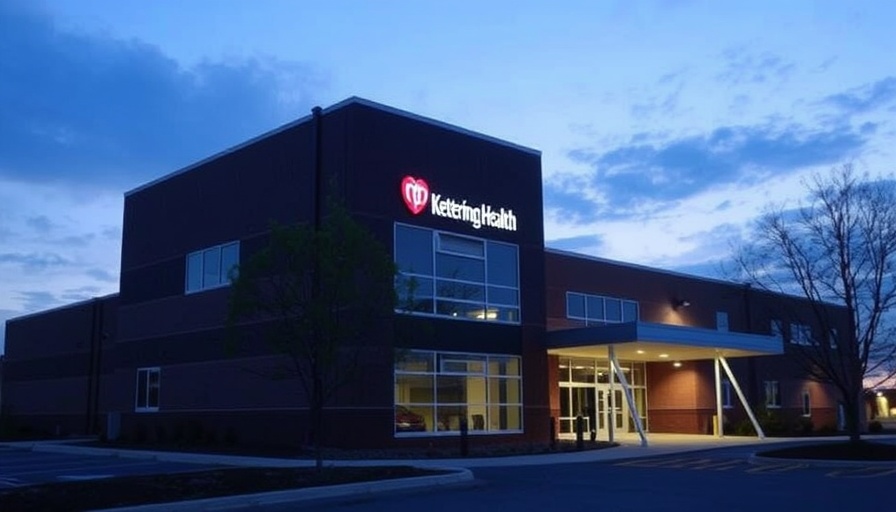
Understanding the Cyber Threat Landscape in Healthcare
The recent ransomware attack on Kettering Health has placed a spotlight on cybersecurity threats facing healthcare organizations. Cybercriminals continue to exploit vulnerabilities, often targeting healthcare since these institutions typically possess sensitive patient data and are perceived as more likely to pay ransom demands. The Interlock ransomware gang, responsible for this attack, embodies the larger trend of 'double extortion' tactics where not only is data encrypted, but it is also threatened with public release unless the ransom is paid. This dual pressure can severely impact both patient safety and organizational reputation.
Immediacy of Response: Why Timely Communication is Crucial
In the wake of the attack, Kettering Health's rapid response is critical. Patients were made aware of scam callers posing as hospital representatives seeking credit card information for illegitimate charges, a tactic that exploits the fear and confusion resulting from the cyber incident. Effective communication strategies during such a crisis can help mitigate risks, protect patients, and retain trust. Leaders in healthcare must prioritize transparent communication, ensuring that patients are informed about what to expect and how to protect themselves in the interim.
Protecting Patient Data: Robust Strategies for the Future
With healthcare attacks on the rise, organizations must adopt more robust cybersecurity measures. This includes ensuring that staff are educated on identifying phishing attempts and fraudulent communications. Regular training sessions and simulated attacks can help reinforce best practices for personnel at all levels. Furthermore, implementing advanced threat detection tools, employing encryption for sensitive data, and maintaining regular system backups are essential strategies that can safeguard against ransomware attacks.
The Emotional Toll: How Cyber Attacks Affect Patient Trust
Cyberattacks can have profound emotional ramifications for patients. Beyond the immediate concern for their personal health data security, patients may feel anxiety and distrust towards their healthcare providers. Understanding the mental and emotional impact on patients is vital for healthcare leaders. To rebuild trust, organizations must not only secure their systems but also adopt a compassionate approach in addressing patient concerns, answering questions, and providing support during and after such incidents.
The Bigger Picture: Healthcare’s Role in Cyber Resilience
The Kettering Health incident underscores a pressing need for healthcare institutions to not only bolster their defenses against cyber threats but also to contribute to the broader industry’s resilience. Collaborative efforts in sharing intelligence on threats and best practices can create a stronger network of security across healthcare providers. As cybercriminals grow more sophisticated, it is imperative that the healthcare sector unites in its approach to cybersecurity.
Call to Action: Prioritizing Cybersecurity for a Safer Healthcare Experience
The Kettering Health ransomware attack is a critical wake-up call for the healthcare industry. It emphasizes the need for effective cybersecurity measures that protect patient data and enhance trust. CEOs and decision-makers in healthcare need to prioritize investments in staff training, advanced cybersecurity tools, and transparent communication practices. Addressing these areas will not only foster a safer environment for patients but will also protect the integrity and reputation of healthcare institutions in a digital age plagued by cyber threats.
 Add Row
Add Row  Add
Add 




Write A Comment